Local Commercial Property Insurance is a robust safety net protecting business investments in commercial buildings and contents against diverse risks, including structure rebuilding, lost income, liability claims, and extra expenses. It's crucial for risk management, offering tailored coverage options like property damage, general liability, and business interruption protection. Businesses must thoroughly review policies, considering expert providers with comprehensive options, location-specific perils, and quality service. Regular policy assessments and updates ensure current protection against evolving risks, preventing financial losses and fostering business resilience.
“Uncover the protective shield for your business with Local Commercial Property Insurance—a comprehensive guide designed to safeguard your investment. In today’s dynamic market, understanding property and casualty insurance for commercial buildings is paramount. This article navigates the intricacies of coverage, highlighting why it’s essential for businesses. From exploring various policy types to uncovering common risks and provider selection tips, we empower entrepreneurs to make informed decisions. Discover real-life case studies and steer clear of frequent mistakes, ensuring your commercial property is secured against unforeseen perils.”
Understanding Local Commercial Property Insurance: A Comprehensive Overview
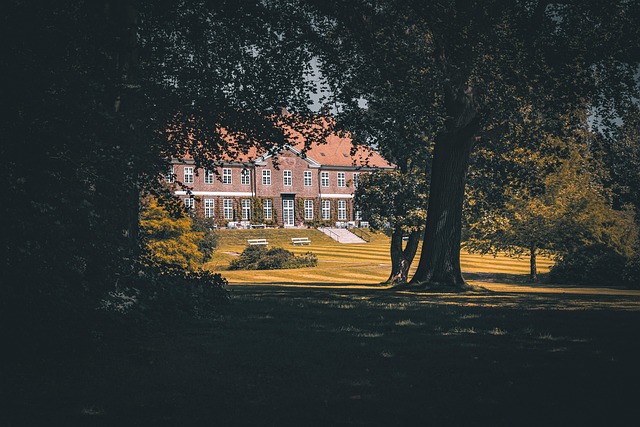
Local Commercial Property Insurance is a crucial safety net for business owners, safeguarding their investments in commercial buildings and their valuable contents against a wide range of potential risks and perils. This type of insurance goes beyond traditional home or general business coverage, offering comprehensive protection tailored to meet the unique needs of commercial properties. It’s more than just replacing damaged structures; it involves covering loss of income due to business interruption, liability for accidents on premises, and even extra expenses incurred during repairs.
Property and Casualty Insurance for Commercial Buildings encompasses various coverages, including building structures, fixtures, and equipment, as well as the business owner’s inventory and personal property. It also includes liability protection, ensuring business owners are shielded from financial loss resulting from lawsuits or claims related to accidents or injuries on their premises. Understanding these intricacies is essential for any business aiming to mitigate risks and ensure uninterrupted operations.
Why Is Commercial Property Insurance Necessary for Businesses?
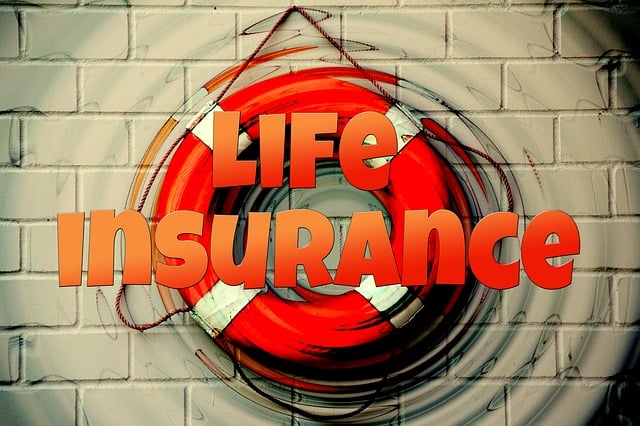
Commercial property insurance is a vital component of risk management for any business owner. It provides financial protection against potential losses or damages to commercial buildings and their contents, which are often a company’s most valuable assets. Businesses operate within an uncertain environment, where unexpected events can disrupt operations and incur significant costs. Property and casualty insurance for commercial buildings offers a safety net by covering expenses related to repairs, rebuilding, or even complete replacement in the event of fire, storms, vandalism, or other covered perils.
Beyond structural damage, this type of insurance also protects businesses from liability claims, such as those arising from injuries sustained on the premises. By having commercial property insurance, business owners can ensure the financial stability and longevity of their operations, enabling them to focus on growth and success rather than unexpected setbacks.
Types of Coverage Included in Commercial Property Insurance Policies

Commercial property insurance policies offer a comprehensive range of coverage options designed to protect businesses from potential risks associated with their buildings, assets, and operations. These policies typically include several key components that cater to different aspects of running a commercial enterprise. One of the primary types of coverage is property damage protection, which covers expenses related to repairing or replacing commercial structures, equipment, and inventory in case of events like fires, storms, theft, or vandalism.
Additionally, general liability insurance is often included, providing financial safeguard against claims of bodily injury or property damage to third parties on the insured premises. This coverage helps businesses manage legal costs and settlements resulting from accidents, slip-and-falls, or other incidents. Other specialized coverages may extend to business interruption, offering financial support during periods when operations must cease due to insured perils, ensuring continuity and helping recover lost revenue.
Key Risks and Perils Commercial Buildings Face: What's Not Covered?
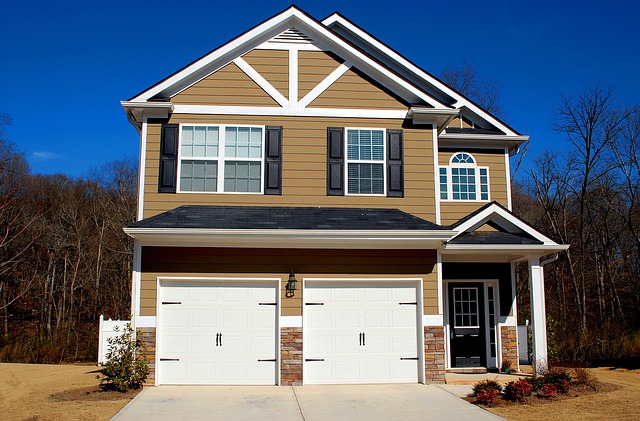
Commercial buildings, despite their robust structures, are exposed to a myriad of risks that can potentially lead to significant financial losses. Some of the key perils include natural disasters such as earthquakes, hurricanes, and floods, which can cause extensive damage to both the structure and its contents. Fire is another critical risk; blazes can rapidly spread, leading to costly repairs or total rebuilding. Additionally, vandalism and theft are prevalent issues that often fall outside the scope of standard insurance policies.
Property and Casualty Insurance for Commercial Buildings offers a safety net against these unforeseen events, but it’s crucial to understand the coverage gaps. Many policies exclude certain high-risk activities, such as illegal operations or war-related damage. Furthermore, while general liability insurance covers accidents and injuries on the premises, it may not include specific business interruptions caused by disasters. Thus, businesses must carefully review their insurance plans to ensure adequate protection against these potential losses.
How to Choose the Right Commercial Property Insurance Provider
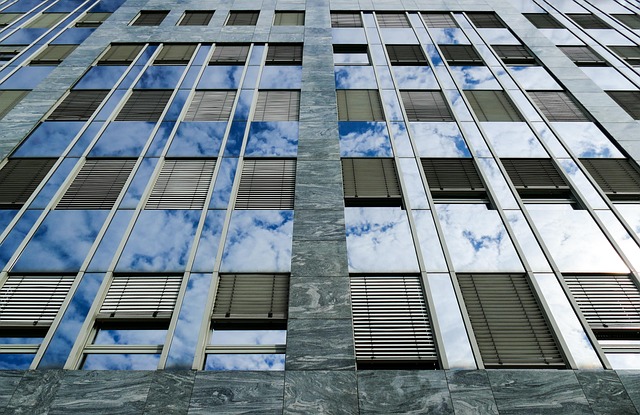
When selecting a commercial property insurance provider, it’s crucial to consider several factors that go beyond simply comparing prices. Start by evaluating their expertise in property and casualty insurance for commercial buildings. Reputable insurers will have extensive experience insuring structures like yours, ensuring they understand the unique risks involved.
Next, assess their range of coverage options tailored for commercial properties. The best provider should offer comprehensive protection, including liability, loss of income, and specific perils relevant to your location. Read policy documents carefully, understanding deductibles, exclusions, and limitations. Additionally, consider customer reviews and ratings to gauge the quality of service and claims handling, ensuring you’re choosing a reliable partner for securing your commercial asset.
The Importance of Regular Reviews and Updates in Your Policy

Regular reviews and updates of your commercial property insurance policy are essential for any business owner. As businesses evolve, their risks and needs change, too. What might have been sufficient coverage a few years ago may no longer protect against emerging threats. Property and Casualty Insurance for Commercial Buildings, for instance, should reflect current market conditions, new construction materials, and evolving business practices.
By conducting periodic policy reviews, you ensure that your insurance keeps pace with these changes. This includes reevaluating the value of your property, assessing potential risks like natural disasters or cyberattacks, and adjusting your coverage limits accordingly. Staying proactive not only protects your business but also helps prevent financial losses in the event of a claim.
Case Studies: Real-Life Examples of Commercial Property Insurance Claims
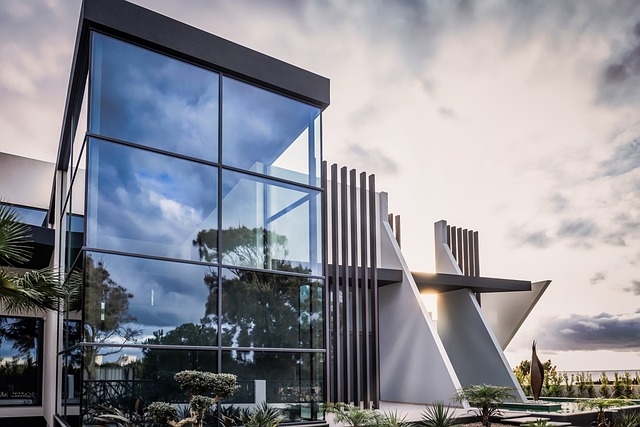
In the dynamic landscape of commercial real estate, understanding the importance of robust Property and Casualty Insurance for Commercial Buildings cannot be overstated. Real-life examples serve as powerful case studies, shedding light on how comprehensive insurance coverage can mitigate risks and provide financial safeguards. Consider a retail store owner who faces a significant claim after a fire breaks out during the night. Thanks to a well-structured commercial property insurance policy, not only is the cost of rebuilding covered, but so are the lost revenue due to business interruption, ensuring the owner’s financial stability during recovery.
Another scenario involves a manufacturing facility experiencing water damage from a burst pipe. A thorough understanding of commercial property insurance benefits becomes evident here as the policy compensates for not just the physical damage but also the downtime and additional expenses incurred while the facility is repaired and operations are restored. These case studies underscore the critical role Property and Casualty Insurance plays in safeguarding business interests, offering peace of mind, and facilitating swift recovery from unforeseen events.
Common Mistakes Business Owners Make When It Comes to Property Casualty Insurance

Many business owners often overlook the significance of comprehensive property and casualty insurance for their commercial buildings. They assume that their general home or business insurance policies are enough, but this is a common mistake. Commercial properties face distinct risks, from natural disasters to vandalism, which require specialized coverage. Skimping on insurance might lead to significant financial losses in the event of damage or theft.
Another blunder is inadequate understanding of policy terms and exclusions. Business owners should thoroughly review their policies to comprehend what’s covered and what’s not. They must be aware of deductibles, limits, and any specific clauses related to their industry. Insufficient coverage or neglecting to update policies as the business grows can leave gaps in protection, making businesses vulnerable during claims.
